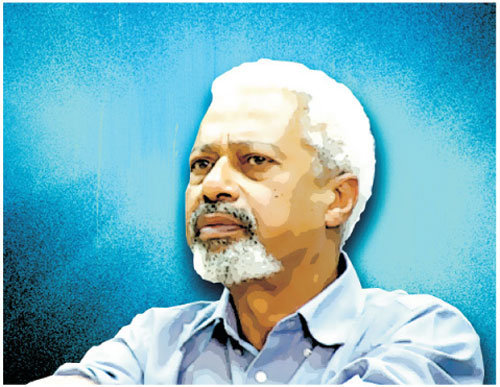Writing about wounds of Africa
Writing about wounds of Africa
Posted October. 13, 2021 07:18,
Updated October. 13, 2021 07:18

“Whoever would understand the poet. Must go into the poet's country,” Johann Wolfgang von Goethe’s poem says. This is why we need to understand Zanzibar located in the Indian Ocean off the coast of East Africa to understand Nobel literature prize winner Abdulrazak Gurnah.
Zanzibar is now part of Tanzania but when Gurnah was born it was an independent country composed of multiple islands. There was a revolution in 1964. The majority yet marginalized blacks killed Arabs and South Asians. It was violent beyond imagination. This was why Gurnah, an Arabic Muslim, moved to the U.K. at the age of 18.
Although it is not an autobiographical novel, one of his well-known books titled “Paradise” showcases such wounds. Yusuf’s mother loves her son so much. She hugs him, pinches his cheek, and holds him up to kiss him any chance she gets. Yusuf who is 12 is embarrassed by his mother treating him like a child. His mother only lets him go when he struggles to get out of his mother’s hands. That is not the end. She pats him on the butt as he runs away. But today is different. She doesn’t have the intention to let go of him. She keeps holding him without saying anything. Yusuf must sense something strange and lets his mother hold him without resisting. His mother is crying without making a sound. His father sold him to a Muslim merchant to pay the debt.
Such a separation from parents at the beginning of “Paradise” belongs to Yusuf, not the writer. However, it strangely overlaps with the writer’s wounds because it was the violent history of Zanzibar that separated Gurnah from his parents and home. The history pushed him into the life of the Diaspora. He was poor and miserable and missed his home badly. Yet, he started writing about his wounds and the wounds of East Africa in English, not his native language, Swahili. Wounds are at the center of his work. Such wounds have ironically deepened him as a writer.







